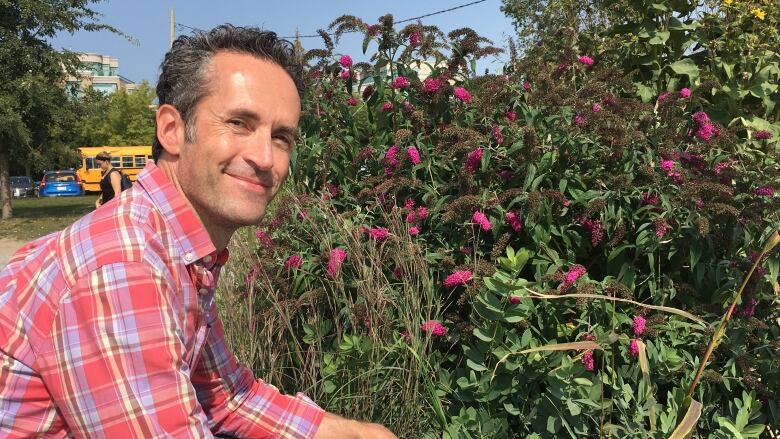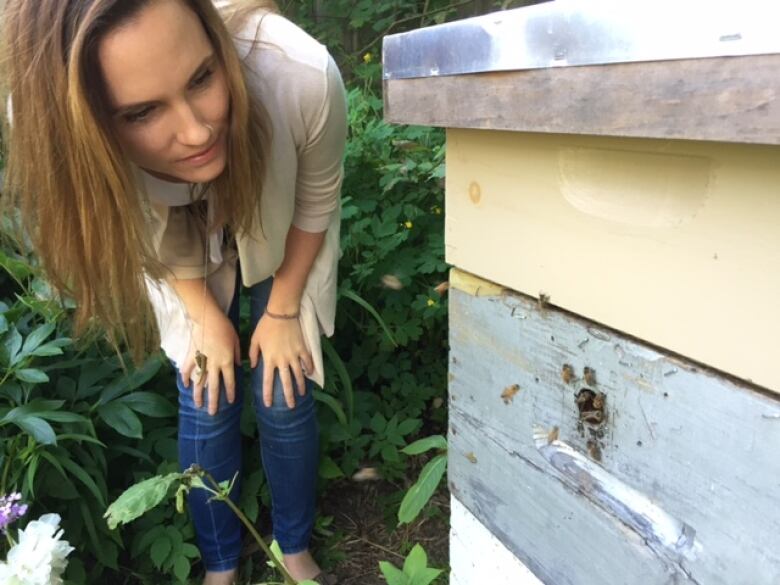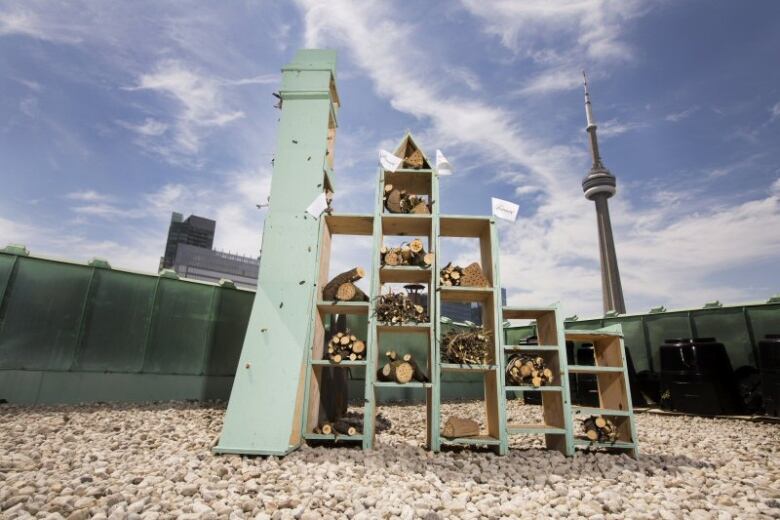How Toronto is 'at the lead' in the effort to save its bees
As bee populations decline, various Toronto initiatives are working to protect the pollinators

The city of Toronto is taking the lead in the fight to save localbeepopulations,according to one of the country's top environmental groupsat a time when the pollinators are suffering from the use of pesticides, habitat loss and a long, harsh winter.
The city has over 360 native species and is on the forefront of the fight againstbee population decline with its newly-adopted pollinator protection strategy, according to JodeRoberts, manager and senior strategist of pollinator programs at the David Suzuki Foundation.
"It's one of the strongest pollinator protection strategies in North America," Roberts said. "Toronto is really at the lead."
Toronto city council unanimously adopted thestrategy last month, whichhelps support the native bee population through new policies,initiatives and resources. The strategy works to combata number of threatsincluding the habitat loss and pesticide use thataffectthepollinators playing acrucial role in producingOntario's fruit and vegetable crops.
Roberts's foundation also recently launchedThe Bees In My Backyard orBIMBYproject with the help of the University of Toronto-Scarborough. The projecttrains Torontoniansto identify native bees andprovides them with thesupplies to create wild bee sanctuaries in their yards.
While the primarygoal of the project is to study local bees with those participating reporting information back to the foundation, Roberts says it is also to bring attention to the existence and importance of wild bee speciesand to allow people to connect with Toronto's nativeinsects.
"The focus has been on honeybees because you have these human beekeepers who notice when they disappear [but] the wild bees are quietly disappearing in the background."

Urban beekeeping
Over the years, Toronto'sinterest in protecting bees and hobbybeekeeping has grown and beekeepers like Shawn Caza are reaping therewards.
Along with running his local honey farm Toronto Honeys, Caza and his partneralso teachothers beekeeping through workshops.
"There was a need," he told CBC Toronto.
"We kept getting messages from people asking if they could learn, sowe had a sense that there was an interest. There were also a lot of beekeepers who were starting up around me who didn't necessarily have access to mentorship."
Urban beekeeping is also a growing trend with several downtown rooftops housing hives, includingthe Fairmont Royal York and Shangri-La hotels, a numberof the University of Toronto'sbuildings, the MaRSCentreand the CBC's Torontoheadquarters, the Canadian Broadcasting Centre.

Howyou can help the bees
So what can you do to help the bees?
According to the city's pollinator protection strategy, while"individuals who want to help pollinators may pursue hobby beekeeping ...planting a pollinator garden is an easier and more effective way to support them."
Thecity's tipsforcreating a pollinator-friendly garden include: planting native plants and plants that continuously bloom from spring to fall, avoiding pesticides, minimizing garden manicuring, preventing the spread of invasive species, and providing a shallow dish of water.
Also rather than calling an exterminatorif you do see a bee hive or swarm developing on your property, there are a number of local bee rescues that humanely remove bees.












_(720p).jpg)


 OFFICIAL HD MUSIC VIDEO.jpg)
.jpg)



























































































